Forest Products Association of Canada awards Gord Johns, MP for Courtenay-Alberni, BC; Spencer Coyne, Mayor of Princeton, BC, and Crystal McAteer, Mayor of High Level, Alberta, as the 2025 recipients of the Jim Carr Forest Community Champion Award. The honour recognizes individuals who have demonstrated outstanding commitment to supporting Canada’s forest sector and the families and communities that depend on it. Named in memory of the late Jim Carr, former Minister of Natural Resources and International Trade Diversification, a tireless advocate for Canadian forestry and its people, this award celebrates community leaders who have shown dedication to advancing the environmental, social, and economic benefits of sustainable forest management in Canada.
A Member of Parliament since 2015, Gord Johns has continued to advocate for the forest sector—the backbone of the communities he represents—promoting sustainable forestry, biomass innovation, and value-added wood products that will create jobs and reduce waste. …As Chair of the Vermillion Forks Community Forest, Mayor Spencer Coyne brings together the partners of the Town of Princeton, the Upper Similkameen Indian Band, and the Regional District of Okanagan Similkameen to oversee the land management and harvesting rights over 11,000 hectares of forest land. …As a lifelong educator, Mayor Crystal McAteer has been instrumental in raising awareness about the importance of the forest industry and environmental stewardship.

.jpg)

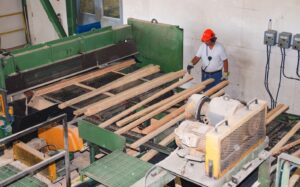 Terrace, a small town nestled in the foothills of the mountains of BC, boomed in the 1920s, shipping Canadian cedar for telephone lines and power cables across the globe. But today local sawmill owners such as Warren Gavronsky are on the front line of a crisis hitting the country’s US$63bn forestry industry as a result of US duties and a slowdown in the world’s largest economy. …Canada’s forest products industry is one of the country’s largest employers, operating in hundreds of communities and providing 200,000 direct jobs. …Ottawa this week quietly withdrew two challenges to US anti-dumping duties on softwood lumber, a “strategic choice” aimed at improving relations with Washington, said Canada’s foreign ministry. The issue for US housebuilders, according to Gavronsky, is that they need softwood lumber. …The US industry accuses its Canadian rivals of dumping because they have no other market to sell into and it is convenient to ship it across the border.
Terrace, a small town nestled in the foothills of the mountains of BC, boomed in the 1920s, shipping Canadian cedar for telephone lines and power cables across the globe. But today local sawmill owners such as Warren Gavronsky are on the front line of a crisis hitting the country’s US$63bn forestry industry as a result of US duties and a slowdown in the world’s largest economy. …Canada’s forest products industry is one of the country’s largest employers, operating in hundreds of communities and providing 200,000 direct jobs. …Ottawa this week quietly withdrew two challenges to US anti-dumping duties on softwood lumber, a “strategic choice” aimed at improving relations with Washington, said Canada’s foreign ministry. The issue for US housebuilders, according to Gavronsky, is that they need softwood lumber. …The US industry accuses its Canadian rivals of dumping because they have no other market to sell into and it is convenient to ship it across the border. Canada withdrew challenges against some import taxes the US levied against softwood lumber in what the government called a “strategic choice,” as Prime Minister Carney seeks a trade deal with President Trump. The government has revoked two separate claims disputing US anti-dumping duties on softwood lumber based on trading between June 2017 and December 2019, according to Canada’s Global Affairs department. “Canada has made this decision in close consultation with Canadian industry, provinces and key partners, and it reflects a strategic choice to maximize long-term interests and prospects for a negotiated resolution with the US,” John Babcock said. …The move follows a pattern of Carney’s government trying to remove so-called trade irritants in pursuit of a wider settlement with the Trump administration, which has erected tariffs against key Canadian industries like steel and autos, as well as a 35% “emergency” tariff against other goods if they aren’t compliant with the US-Mexico-Canada trade deal.
Canada withdrew challenges against some import taxes the US levied against softwood lumber in what the government called a “strategic choice,” as Prime Minister Carney seeks a trade deal with President Trump. The government has revoked two separate claims disputing US anti-dumping duties on softwood lumber based on trading between June 2017 and December 2019, according to Canada’s Global Affairs department. “Canada has made this decision in close consultation with Canadian industry, provinces and key partners, and it reflects a strategic choice to maximize long-term interests and prospects for a negotiated resolution with the US,” John Babcock said. …The move follows a pattern of Carney’s government trying to remove so-called trade irritants in pursuit of a wider settlement with the Trump administration, which has erected tariffs against key Canadian industries like steel and autos, as well as a 35% “emergency” tariff against other goods if they aren’t compliant with the US-Mexico-Canada trade deal.  Canada is expected to announce it’s launching formal consultations on the North American trade pact within the next week, after the Trump administration kicked off its own review and the US ambassador said a larger deal is “not going to happen” soon. Canada-US Trade Minister Dominic LeBlanc’s office said the government is expected to imminently post an official notice seeking the public’s comments and feedback about the Canada-US-Mexico Agreement (CUSMA). In preparation for the review, “Canada will be engaging with Canadian industry leaders, provinces and territories and Indigenous partners,” LeBlanc’s office said. The US announced Tuesday it’s formally starting consultations to evaluate the agreement’s results over the past five years. …The formal negotiations to review CUSMA could begin in early 2026. …The prime minister and several ministers are headed to Mexico… an effort to shore up support ahead of the CUSMA review.
Canada is expected to announce it’s launching formal consultations on the North American trade pact within the next week, after the Trump administration kicked off its own review and the US ambassador said a larger deal is “not going to happen” soon. Canada-US Trade Minister Dominic LeBlanc’s office said the government is expected to imminently post an official notice seeking the public’s comments and feedback about the Canada-US-Mexico Agreement (CUSMA). In preparation for the review, “Canada will be engaging with Canadian industry leaders, provinces and territories and Indigenous partners,” LeBlanc’s office said. The US announced Tuesday it’s formally starting consultations to evaluate the agreement’s results over the past five years. …The formal negotiations to review CUSMA could begin in early 2026. …The prime minister and several ministers are headed to Mexico… an effort to shore up support ahead of the CUSMA review. Prime Minister Mark Carney is embarking on a pivotal meeting with Mexican President Claudia Sheinbaum, just as the United States officially launches the process to review the North American trade agreement. The Office of the US Trade Representative will seek public comments on the Canada-US-Mexico Agreement (CUSMA) over 45 days and has scheduled a public hearing in November. Public consultation is required by law and is a clear sign that the Trump administration is preparing to renegotiate, not just review, the trilateral agreement, says Eric Miller, president of Rideau Potomac Strategy Group. Under the current agreement, Canada’s trade with the U.S. is 85% tariff free, but that could change when CUSMA expires next June. …It’s under this pressure that Carney is meeting with Sheinbaum to
Prime Minister Mark Carney is embarking on a pivotal meeting with Mexican President Claudia Sheinbaum, just as the United States officially launches the process to review the North American trade agreement. The Office of the US Trade Representative will seek public comments on the Canada-US-Mexico Agreement (CUSMA) over 45 days and has scheduled a public hearing in November. Public consultation is required by law and is a clear sign that the Trump administration is preparing to renegotiate, not just review, the trilateral agreement, says Eric Miller, president of Rideau Potomac Strategy Group. Under the current agreement, Canada’s trade with the U.S. is 85% tariff free, but that could change when CUSMA expires next June. …It’s under this pressure that Carney is meeting with Sheinbaum to 
 VANCOUVER — Canfor Corporation announced that its 77%-owned subsidiary, Vida AB, has completed the acquisition of AB Karl Hedin Sågverk. The transaction,
VANCOUVER — Canfor Corporation announced that its 77%-owned subsidiary, Vida AB, has completed the acquisition of AB Karl Hedin Sågverk. The transaction, 
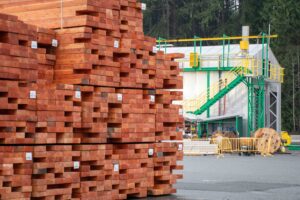 Shortly after Prime Minister Carney’s announcement of $500-million to help Canada’s softwood-lumber industry decrease its reliance on the hostile US market, BC’s Forestry Minister offered a modest target of 10%. …History suggests, however, that even that degree of market diversification stands to be an uphill battle. …While there have been modest inroads in China and Japan, diversification has mostly proved quixotic − partly because the proximity of the massive US housing market, for which there is not enough lumber harvested stateside to serve, has been a disincentive to reach further….Rick Doman, chair BC’s Forestry Innovation Investment board − mentioned South Korea, Vietnam, India, Australia, Britain. …Canada Wood Group president Bruce St. John describe it as a painstaking process involving promotional efforts, direct engagement with local governments on building codes and standards, and expertise-building for industry. …To succeed, particularly amid growing softwood-export competition from Europe especially, will require steady focus through and perhaps beyond the Trump era. [to access the full story a Globe & Mail subscription is required]
Shortly after Prime Minister Carney’s announcement of $500-million to help Canada’s softwood-lumber industry decrease its reliance on the hostile US market, BC’s Forestry Minister offered a modest target of 10%. …History suggests, however, that even that degree of market diversification stands to be an uphill battle. …While there have been modest inroads in China and Japan, diversification has mostly proved quixotic − partly because the proximity of the massive US housing market, for which there is not enough lumber harvested stateside to serve, has been a disincentive to reach further….Rick Doman, chair BC’s Forestry Innovation Investment board − mentioned South Korea, Vietnam, India, Australia, Britain. …Canada Wood Group president Bruce St. John describe it as a painstaking process involving promotional efforts, direct engagement with local governments on building codes and standards, and expertise-building for industry. …To succeed, particularly amid growing softwood-export competition from Europe especially, will require steady focus through and perhaps beyond the Trump era. [to access the full story a Globe & Mail subscription is required]

 Western Forest Products announced planned temporary operating curtailments at its BC sawmills during the fourth quarter of 2025. These planned curtailments, combined with temporary curtailments taken in Q3 of 2025, will collectively reduce lumber production by ~50 million board feet in the second half of 2025, amounting to ~6% of the Company’s annual lumber capacity. The curtailments are in response to persistently weak market conditions, further impacted by increases in US lumber duties. In addition, certain factors relating to the operating environment, including a lack of available economic log supply, ongoing harvesting permitting delays and the strike by the United Steelworkers Local 1-1937 at our La-kwa sa muqw Forestry Limited Partnership are also contributing factors. The temporary curtailments will be taken through a combination of reduced operating hours, an extended holiday break and reconfigured shifting schedules. The Chemainus sawmill, which was curtailed for the third quarter of 2025, will remain temporarily curtailed for the fourth quarter.
Western Forest Products announced planned temporary operating curtailments at its BC sawmills during the fourth quarter of 2025. These planned curtailments, combined with temporary curtailments taken in Q3 of 2025, will collectively reduce lumber production by ~50 million board feet in the second half of 2025, amounting to ~6% of the Company’s annual lumber capacity. The curtailments are in response to persistently weak market conditions, further impacted by increases in US lumber duties. In addition, certain factors relating to the operating environment, including a lack of available economic log supply, ongoing harvesting permitting delays and the strike by the United Steelworkers Local 1-1937 at our La-kwa sa muqw Forestry Limited Partnership are also contributing factors. The temporary curtailments will be taken through a combination of reduced operating hours, an extended holiday break and reconfigured shifting schedules. The Chemainus sawmill, which was curtailed for the third quarter of 2025, will remain temporarily curtailed for the fourth quarter. 
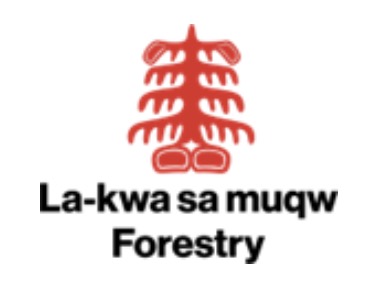 Campbell River, British Columbia: La-kwa sa muqw Forestry Limited Partnership (LKSM) has been working to bring closure to the strike, which began on June 6, 2025, in a way that supports strong, positive, and enduring relationships between First Nations and other participants in the forestry sector in their territories and allows everyone to move forward together. Despite LKSM’s repeated efforts to achieve a negotiated resolution—including multiple applications for mediation and requests for special government intervention, the USW has continued to refuse both direct bargaining and third-party mediation. This now leaves legal action as the only available recourse to advance the interests of all parties and communities affected by the dispute. …This situation has left LKSM with no other option than to pursue a legal remedy that will remove this impediment to progress and enable resumption of negotiations.
Campbell River, British Columbia: La-kwa sa muqw Forestry Limited Partnership (LKSM) has been working to bring closure to the strike, which began on June 6, 2025, in a way that supports strong, positive, and enduring relationships between First Nations and other participants in the forestry sector in their territories and allows everyone to move forward together. Despite LKSM’s repeated efforts to achieve a negotiated resolution—including multiple applications for mediation and requests for special government intervention, the USW has continued to refuse both direct bargaining and third-party mediation. This now leaves legal action as the only available recourse to advance the interests of all parties and communities affected by the dispute. …This situation has left LKSM with no other option than to pursue a legal remedy that will remove this impediment to progress and enable resumption of negotiations. VANCOUVER ISLAND — Over 3 months later, 105 forestry workers are still on the picket lines this week after walking off the job June 6, and it doesn’t look like they expect to be going back to work anytime soon. …“I didn’t think we’d get to this point,” said United Steelworkers’ Jason Cox. …The union says the company wants to contract out jobs but La-kwa sa muqw Forestry says that’s not the case, it just wants to give new employees the choice. Operations manager Greg DeMille said, “They are demanding that we agree to mandatory union certification. And so with that and the fact we can’t agree to that because we feel it impacts employee’s rights to choose and has an impact to First Nations rights to free, prior and informed consent. …The union says it respects First Nation rights but insists this should be considered a “normal labour dispute” and nothing else.
VANCOUVER ISLAND — Over 3 months later, 105 forestry workers are still on the picket lines this week after walking off the job June 6, and it doesn’t look like they expect to be going back to work anytime soon. …“I didn’t think we’d get to this point,” said United Steelworkers’ Jason Cox. …The union says the company wants to contract out jobs but La-kwa sa muqw Forestry says that’s not the case, it just wants to give new employees the choice. Operations manager Greg DeMille said, “They are demanding that we agree to mandatory union certification. And so with that and the fact we can’t agree to that because we feel it impacts employee’s rights to choose and has an impact to First Nations rights to free, prior and informed consent. …The union says it respects First Nation rights but insists this should be considered a “normal labour dispute” and nothing else.  Ontario’s Associate Minister of Forestry and Forest Products announced over $5 million in funding today for Interfor Sault Ste. Marie at the company’s mill on Peoples Road.
Ontario’s Associate Minister of Forestry and Forest Products announced over $5 million in funding today for Interfor Sault Ste. Marie at the company’s mill on Peoples Road.  TORONTO – The Ontario government is investing over $3.5 million through the
TORONTO – The Ontario government is investing over $3.5 million through the 




 The SLB’s Board of Directors has approved a
The SLB’s Board of Directors has approved a  WASHINGTON
WASHINGTON
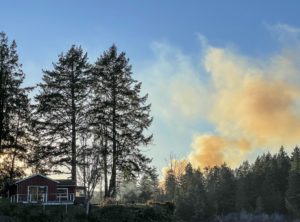 The American Property Casualty Insurance Association (APCIA) is pressing lawmakers to advance federal wildfire legislation, warning that inaction risks worsening losses for communities nationwide. …Sam Whitfield explained that federal reforms are essential to reduce wildfire risks, strengthen community resilience and protect lives and property. The House has passed its version of the Fix Our Forests Act, or H.R. 471, in January. In April, a companion bill, or S. 1462, was introduced in the Senate. Both bills align with recommendations from the Wildland Fire Mitigation and Management Commission. Provisions include reducing fuel loads in forests and rangelands, preventing utility infrastructure from sparking fires through vegetation management, and promoting community wildfire risk reduction. …The insurance industry has faced mounting wildfire-related losses. …Insurers have responded by tightening underwriting standards, reducing capacity in wildfire-exposed areas, and relying more heavily on reinsurance to absorb catastrophic risks.
The American Property Casualty Insurance Association (APCIA) is pressing lawmakers to advance federal wildfire legislation, warning that inaction risks worsening losses for communities nationwide. …Sam Whitfield explained that federal reforms are essential to reduce wildfire risks, strengthen community resilience and protect lives and property. The House has passed its version of the Fix Our Forests Act, or H.R. 471, in January. In April, a companion bill, or S. 1462, was introduced in the Senate. Both bills align with recommendations from the Wildland Fire Mitigation and Management Commission. Provisions include reducing fuel loads in forests and rangelands, preventing utility infrastructure from sparking fires through vegetation management, and promoting community wildfire risk reduction. …The insurance industry has faced mounting wildfire-related losses. …Insurers have responded by tightening underwriting standards, reducing capacity in wildfire-exposed areas, and relying more heavily on reinsurance to absorb catastrophic risks. Trade associations representing various industries issued a letter Tuesday expressing “serious concerns” about a proposed merger between major rail companies Norfolk Southern and Union Pacific. “We write to express our serious concerns and reservations about the proposed merger between Union Pacific and Norfolk Southern,” said the letter, which came from trade associations representing manufacturing, chemical, energy and agriculture firms. “Past rail mergers have shown what happens when consolidation goes unchecked: service suffers, costs increase, and jobs disappear,” the trade groups wrote to the U.S. Surface Transportation Board. …The railroad companies, however, have argued that the merger will be a benefit to the country, improving efficiency and allowing for more routes. …In addition to the American Chemistry Council, signatories of the letter include the American Petroleum Institute, International Dairy Foods Association and the American Forest and Paper Association.
Trade associations representing various industries issued a letter Tuesday expressing “serious concerns” about a proposed merger between major rail companies Norfolk Southern and Union Pacific. “We write to express our serious concerns and reservations about the proposed merger between Union Pacific and Norfolk Southern,” said the letter, which came from trade associations representing manufacturing, chemical, energy and agriculture firms. “Past rail mergers have shown what happens when consolidation goes unchecked: service suffers, costs increase, and jobs disappear,” the trade groups wrote to the U.S. Surface Transportation Board. …The railroad companies, however, have argued that the merger will be a benefit to the country, improving efficiency and allowing for more routes. …In addition to the American Chemistry Council, signatories of the letter include the American Petroleum Institute, International Dairy Foods Association and the American Forest and Paper Association.

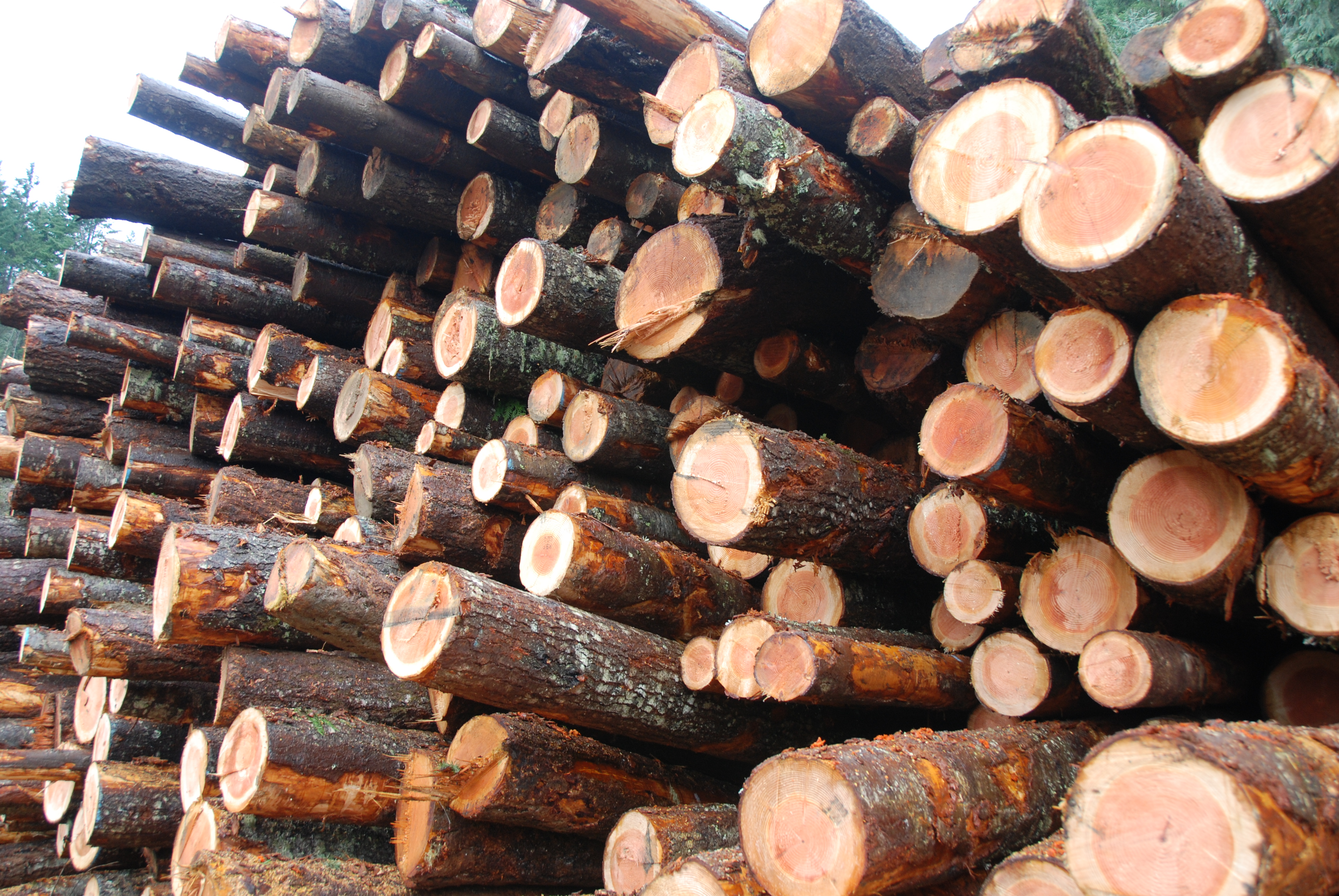 HORRY COUNTY, S.C. — A family-owned sawmill plans to create 18 jobs by opening a multi-million facility in northern Horry County amid high-profile shutdowns of other sites across the region. “This facility will support area businesses impacted by recent closures, and we’re proud to expand our services and give back to the region that has supported us,” Matthew Johnson, founder of Galivants Ferry Sawmill, said in a news release shared on Facebook by the Myrtle Beach Regional Economic Development Corporation. In August, Canfor closed its Darlington and Estill plants — eliminating 290 jobs in a move it blamed on “an extended period of consistently weak market conditions.” And in December, Georgetown County’s International Paper ended operations, cutting 674 jobs. The Galivants Ferry facility on McCracken Road will support the local timber industry and help fill the gap left by those closures
HORRY COUNTY, S.C. — A family-owned sawmill plans to create 18 jobs by opening a multi-million facility in northern Horry County amid high-profile shutdowns of other sites across the region. “This facility will support area businesses impacted by recent closures, and we’re proud to expand our services and give back to the region that has supported us,” Matthew Johnson, founder of Galivants Ferry Sawmill, said in a news release shared on Facebook by the Myrtle Beach Regional Economic Development Corporation. In August, Canfor closed its Darlington and Estill plants — eliminating 290 jobs in a move it blamed on “an extended period of consistently weak market conditions.” And in December, Georgetown County’s International Paper ended operations, cutting 674 jobs. The Galivants Ferry facility on McCracken Road will support the local timber industry and help fill the gap left by those closures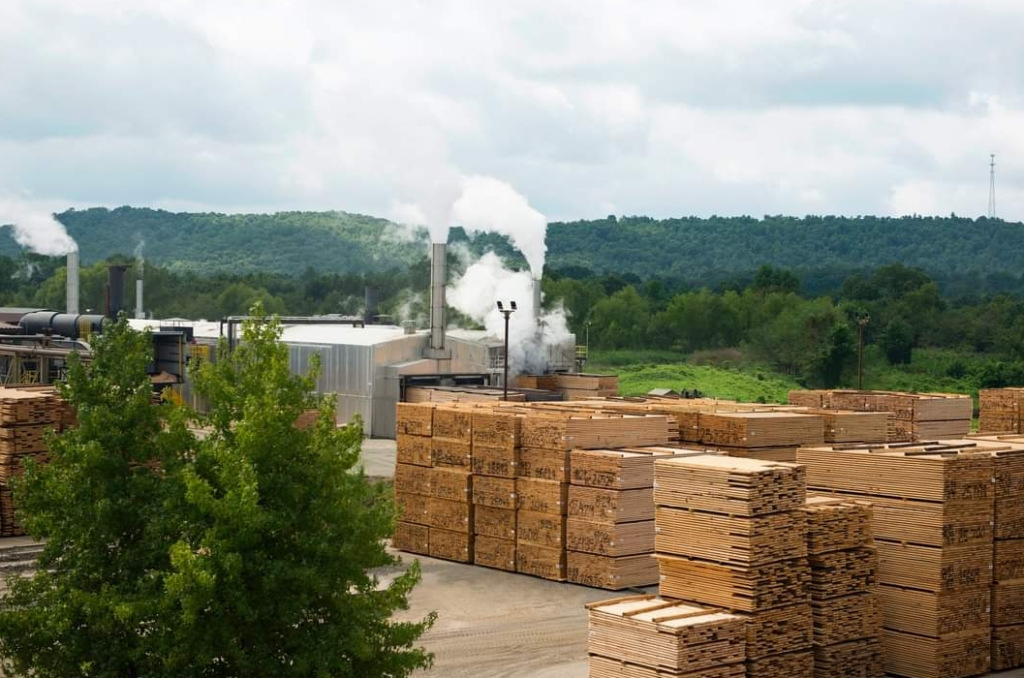
 JONESBORO — The Arkansas State University System board of trustees approved several policy changes during a meeting Friday at Arkansas State University. Trustees approved a policy to “ensure the efficient disposition of real property,” effective immediately. …Trustees also approved creation of a new hire and annual employee training policy — effective Jan. 1, 2026 — as the system doesn’t currently have a mandatory training policy. …Trustees approved naming the workforce training center at Arkansas State University Three Rivers for West Fraser for the next decade. …West Fraser “has made significant contributions to ASU Three Rivers, of a magnitude worthy of special gratitude and lasting recognition, including funding that will provide program support for workforce development and generous support through sponsorships, donations, resources, and collaboration that has created significant revenue for the college,” according to the resolution. …Over the past eight years, the college has collaborated on more than 15,000 training hours with West Fraser.
JONESBORO — The Arkansas State University System board of trustees approved several policy changes during a meeting Friday at Arkansas State University. Trustees approved a policy to “ensure the efficient disposition of real property,” effective immediately. …Trustees also approved creation of a new hire and annual employee training policy — effective Jan. 1, 2026 — as the system doesn’t currently have a mandatory training policy. …Trustees approved naming the workforce training center at Arkansas State University Three Rivers for West Fraser for the next decade. …West Fraser “has made significant contributions to ASU Three Rivers, of a magnitude worthy of special gratitude and lasting recognition, including funding that will provide program support for workforce development and generous support through sponsorships, donations, resources, and collaboration that has created significant revenue for the college,” according to the resolution. …Over the past eight years, the college has collaborated on more than 15,000 training hours with West Fraser.


 New Zealand — Up to 119 jobs could go at Carter Holt Harvey’s Tokoroa factory, with locals calling the move devastating for the town. A union representing workers at Carter Holt Harvey’s Tokoroa plywood manufacturing plant says its closure will be devastating for the town. The company has begun consultation with staff on closing the plant and importing ply from overseas, with the loss of up to 119 full-time jobs. The proposed closure follows OJI Fibre Solutions cutting 130 jobs and closing the country’s last paper-making machine at nearby Kinleith in June this year. Red Middlemiss has been a union spokesperson at the ply plant for 23 years. He said Carter Holt Harvey can now make and import plywood from overseas for around 60 percent of what it costs to manufacture it locally.
New Zealand — Up to 119 jobs could go at Carter Holt Harvey’s Tokoroa factory, with locals calling the move devastating for the town. A union representing workers at Carter Holt Harvey’s Tokoroa plywood manufacturing plant says its closure will be devastating for the town. The company has begun consultation with staff on closing the plant and importing ply from overseas, with the loss of up to 119 full-time jobs. The proposed closure follows OJI Fibre Solutions cutting 130 jobs and closing the country’s last paper-making machine at nearby Kinleith in June this year. Red Middlemiss has been a union spokesperson at the ply plant for 23 years. He said Carter Holt Harvey can now make and import plywood from overseas for around 60 percent of what it costs to manufacture it locally. Timber illegally sourced from Russia has been found in the UK housing supply chain, according to an investigation by Australian forensic supply chain specialist Source Certain. Imports of Russian timber were prohibited in 2022 following the invasion of Ukraine. However, the investigation identified a smuggling operation that concealed the timber’s origin by relabelling it as material from the Baltic States, including Estonia, Latvia and Lithuania. The findings raise concerns for the housing and construction sectors, where suppliers investing in certified and responsibly sourced timber face higher operational costs. Industry voices warn that without effective monitoring, compliant businesses are being undercut and the credibility of the wider supply chain is being damaged. In response, UK-based Think Timber has introduced a packaging system designed to provide traceability from forest to building site. Each pack incorporates a unique QR code that, when scanned, verifies the chain of custody and origin of the material.
Timber illegally sourced from Russia has been found in the UK housing supply chain, according to an investigation by Australian forensic supply chain specialist Source Certain. Imports of Russian timber were prohibited in 2022 following the invasion of Ukraine. However, the investigation identified a smuggling operation that concealed the timber’s origin by relabelling it as material from the Baltic States, including Estonia, Latvia and Lithuania. The findings raise concerns for the housing and construction sectors, where suppliers investing in certified and responsibly sourced timber face higher operational costs. Industry voices warn that without effective monitoring, compliant businesses are being undercut and the credibility of the wider supply chain is being damaged. In response, UK-based Think Timber has introduced a packaging system designed to provide traceability from forest to building site. Each pack incorporates a unique QR code that, when scanned, verifies the chain of custody and origin of the material.